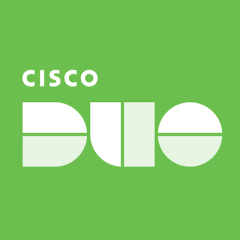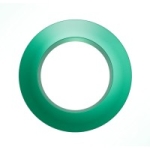What is our primary use case?
We began using Duo Security just after the pandemic began. We set up the VPN for our users so that they could connect from home and use the business applications. It is a security feature that is used on your mobile device, rather than something that is fixed in the office. You can use it at any given moment, as long as you have your mobile device with you.
Prior to implementing it, they were using just a username and password. That was not secure enough, so there had to be the second level of authentication. As it is now, it is integrated with the firewall. You put in your password and it is followed by a six-digit code that needs to be entered.
We operate in the financial sector so this product is crucial for our business.
The security codes are not generated locally, or on-premises. Rather, they are generated and sent from the cloud.
It is integrated with our Check Point firewall, which is used across different departments. People can connect from anywhere, including from home, and then utilize the business applications in different departments. All of them authenticate using the same firewall.
Importantly, it's not limited to one vendor or one firewall. You can use it to connect through a primary DC and a secondary DC, even if they are different vendors.
How has it helped my organization?
Using this product has improved our organization, primarily with respect to security. Even the system administrator, in charge of setting up the users, would not be able to use another person's ID to connect. This is because they would then need to use Duo Security, which resides on the user's device. This is something that other people cannot do because they can't generate the six-digit codes.
In terms of securing access to the applications on our network, this solution is very reliable.
With respect to our users feeling safe, secure, supported, and included, Duo Security is among the best solutions that we have ever used. We have not fully utilized all of the features. However, we're looking at using Duo to authenticate internet banking solutions. Providing a second level of authentication in these situations, perhaps in mobile banking, would be valuable.
Our regulatory requirements necessitate creating a very secure connection for financial services, which is what we get from this product.
Having a single solution for multifactor authentication makes it comfortable for the users. They only need to train on one product.
Maintaining network connectivity is not difficult. We are integrated with Fortinet and Check Point solutions. The Check Point solution is in a different data center than Fortinet, and Duo Security integrates with both of them, despite being from different vendors.
Overall, this product has helped us to remediate threats more quickly. There is no way that others can generate the security code, such as by using another server. They will not be able to connect or authenticate themselves another way.
The resilience that Duo Security provides is valuable in terms of meeting our audit requirements. This is important to us because it helps us to meet our regulatory requirements, which are set by the central bank and enforced by our cybersecurity team.
What is most valuable?
The most valuable feature is the ability for users to connect securely to the office using the VPN. There's no way to breach security using Duo. No user can connect from a different device, which guarantees access on a per-user basis. The only way somebody else can connect is if the user shares their VPN password, as well as the six-digit code. This is a well-accepted, business solution.
It is very easy to set up, configure, and integrate this product. It is also easy, from the user's side of things.
The interface is such that all of the management can be done from a single pane of glass. You can integrate as many applications as you want, and it's up to the enterprise that dictates that. Overall, it's easy to manage and administer. There are not too many moving pieces, which would make things more difficult to administer and troubleshoot when there are problems.
From our employees' perspective, they are confident that they are the only people that can connect to their accounts. Access to their own accounts remains under their control, and they are the only ones that can connect.
What needs improvement?
The reporting feature is somewhat limited. All that you get is the list of times that the user connected. Given that it's only a secondary authentication, it may not be possible to enhance the reporting.
We have had instances where Duo Security stops working on a user's device, which we have fixed by uninstalling and then reinstalling it.
For how long have I used the solution?
I am in my third year of using Duo Security.
What do I think about the stability of the solution?
Due Security is a very stable product. We have never had issues in that regard.
What do I think about the scalability of the solution?
This is a very scalable solution. It's not limited to specific applications and we can use it across multiple ones.
We have 175 end-users.
How are customer service and support?
If we need to reach out to them, they would quickly assist us. At any given time, you can get support from Duo Security. This is not a free product and the technical support team is very reliable.
I would rate the technical support a nine out of ten.
How would you rate customer service and support?
Which solution did I use previously and why did I switch?
Prior to implementing Duo Security, our users were not using multifactor authentication. They were simply authenticating with a username and password. That was not secure enough, which is why we implemented the second level of authentication.
How was the initial setup?
The initial setup is easy and straightforward. It is very quick to integrate and manage. As it is very easy to integrate, it works well to secure our infrastructure from end to end, helping us to detect and remediate threats.
You just download the application and within a minute or so, you have an admin panel. After that, it is integrated with the firewall and the users can then quickly connect.
The integration is easy because Duo gives you a list of steps that vary based on the application and vendor that you want to integrate with. For example, if you want to integrate with a Check Point product then you have one set of instructions, whereas if you want to integrate with a Fortinet product, there is an alternate set for that.
In total, the deployment took less than two hours to complete.
What was our ROI?
Our ROI is mainly from the security side. Because of the regulator's requirement, it's worth the procurement. That said, on our end, we're not fully utilizing the product because you can integrate it with different applications. At this point, we are just using the basic feature, which is to connect to the VPN.
The administration is comfortable knowing that no user can connect to the system without using Duo authentication.
What's my experience with pricing, setup cost, and licensing?
From a business perspective, it is a little bit costly. The licensing is on a per-user basis. However, it's worth the cost.
We began with a free trial of the product that lasted for one month. After that, we paid for the license to use it.
Which other solutions did I evaluate?
We had an option to use Google Authenticator. It is also a secure solution but we chose Duo Security because it was recommended to us, and it has been acquired by Cisco.
What other advice do I have?
We do not utilize all of the features that are offered by Duo Security.
I would rate this solution a nine out of ten.
Which deployment model are you using for this solution?
Hybrid Cloud
If public cloud, private cloud, or hybrid cloud, which cloud provider do you use?
Other
Disclosure: My company does not have a business relationship with this vendor other than being a customer.


















